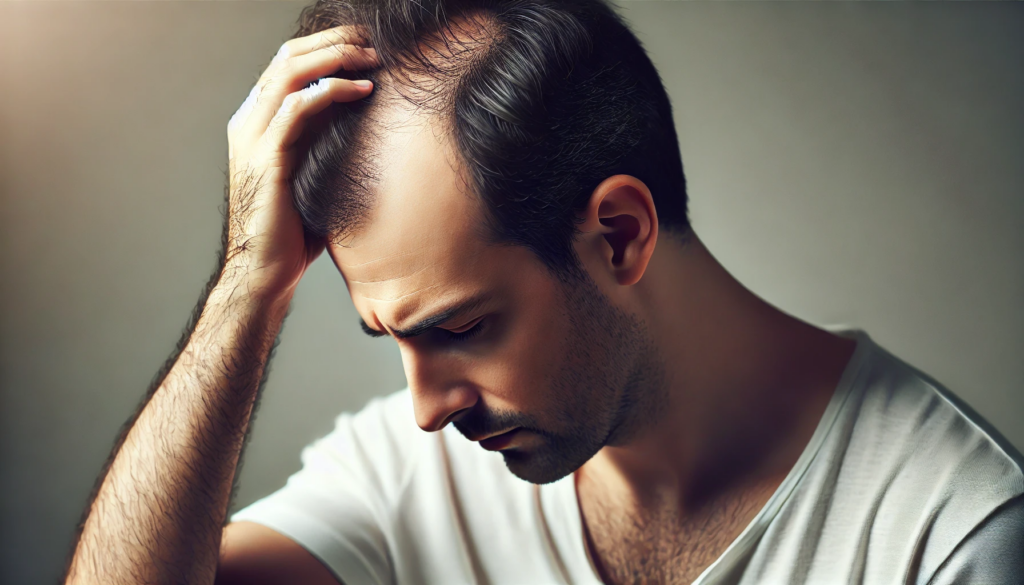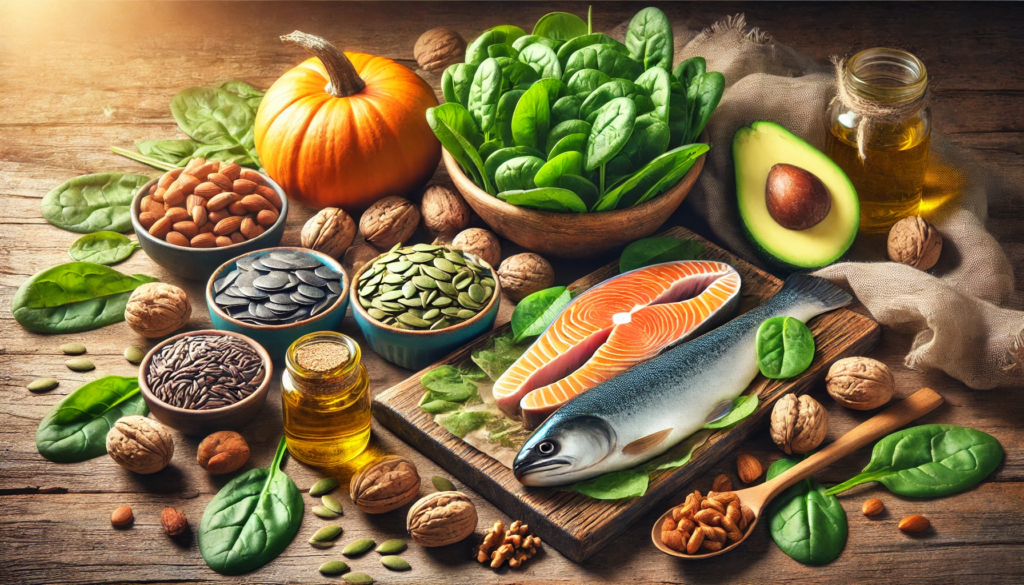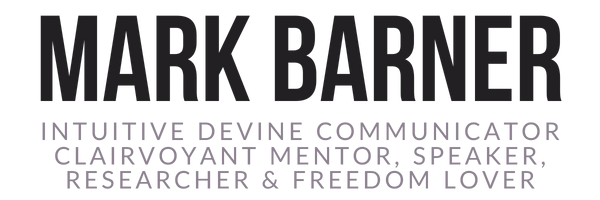
When it comes to addressing hair loss, especially male pattern baldness, dihydrotestosterone (DHT) often takes center stage as a primary culprit. DHT is a byproduct of testosterone and binds to hair follicles, gradually shrinking them, which leads to thinning hair and eventual baldness. Fortunately, there are natural ways to help manage DHT levels and promote hair growth, all backed by science. Let’s explore these methods, how they work, and the research behind them.
Understanding the Role of DHT in Hair Loss
DHT is a hormone that, while necessary for some bodily functions, can cause problems when it binds excessively to hair follicles. This process is particularly impactful for those who are genetically predisposed to hair follicle sensitivity to DHT, leading to androgenetic alopecia, or male pattern baldness. Lowering DHT levels can help slow or even reverse this hair thinning process.

Natural Foods that Help Combat DHT
- Pumpkin Seeds: Pumpkin seeds are rich in zinc and plant-based phytosterols that have been shown to inhibit DHT. A study published in Evidence-Based Complementary and Alternative Medicine found that men who supplemented with pumpkin seed oil saw increased hair growth over 24 weeks.
- Fatty Fish: Foods like salmon are high in omega-3 fatty acids, which have anti-inflammatory properties. Inflammation can exacerbate hair loss, and omega-3s help maintain healthy scalp conditions. While they don’t directly reduce DHT, they create a favorable environment for hair follicles to thrive.
- Spinach: Rich in magnesium and iron, spinach helps with overall hair health. Magnesium can indirectly lower DHT by supporting hormonal balance. This leafy green is a powerhouse of vitamins that aid in circulation and follicle health.
- Nuts and Seeds (Walnuts, Chia Seeds): These are loaded with nutrients like zinc and vitamin E, which are critical for scalp health. Zinc, in particular, has been shown to help block DHT production by inhibiting the enzyme 5-alpha-reductase. Although not a substitute for medications like finasteride, zinc from food sources offers a natural way to help regulate DHT.
- Avocado: Avocados are rich in biotin, a B-vitamin associated with healthy hair growth. Although biotin doesn’t directly impact DHT, it supports hair strength and elasticity, which can help counterbalance the thinning effects of DHT on the scalp.
Do Natural Foods Replace DHT-Blocking Medications?
While a DHT-friendly diet can contribute to hair health, it’s worth noting that food alone may not provide the same level of impact as concentrated medications like finasteride or dutasteride. These medications are clinically proven to block DHT, but they come with potential side effects. For those seeking natural alternatives, incorporating foods high in zinc, omega-3s, and plant-based sterols can offer benefits without side effects, though the effects may be milder.
Additional Lifestyle Tips for DHT Reduction
- Manage Stress: Chronic stress can increase cortisol, which in turn can indirectly lead to higher DHT levels. Practices like meditation, exercise, and mindfulness can support hormonal balance.
- Consider Topical Treatments: For localized DHT reduction, ketoconazole shampoos have shown efficacy. Ketoconazole study
Red Light Therapy: Does It Really Work for Hair Loss?

Red light therapy (RLT), also known as low-level laser therapy (LLLT), has gained popularity as a non-invasive method to stimulate hair growth. While the research is promising, it’s not conclusive. Some studies suggest that red light therapy can increase blood flow to the scalp and stimulate hair follicles, potentially leading to thicker, healthier hair. For instance, a study published in Lasers in Surgery and Medicine found that LLLT significantly increased hair density in patients with androgenetic alopecia over a period of 26 weeks. However, results can vary greatly depending on individual factors like the extent of hair loss and how early treatment is started. Although RLT might not fully replace medications for reducing DHT, it can be a helpful complementary treatment.
My Conclusion
For those looking to combat DHT naturally, focusing on a diet rich in nutrients that support hormonal balance and overall scalp health is a good start. While it might not offer the quick results of medications, these foods contribute to long-term hair health and can be a part of a holistic approach to managing hair loss.
Discover more from
Subscribe to get the latest posts sent to your email.
